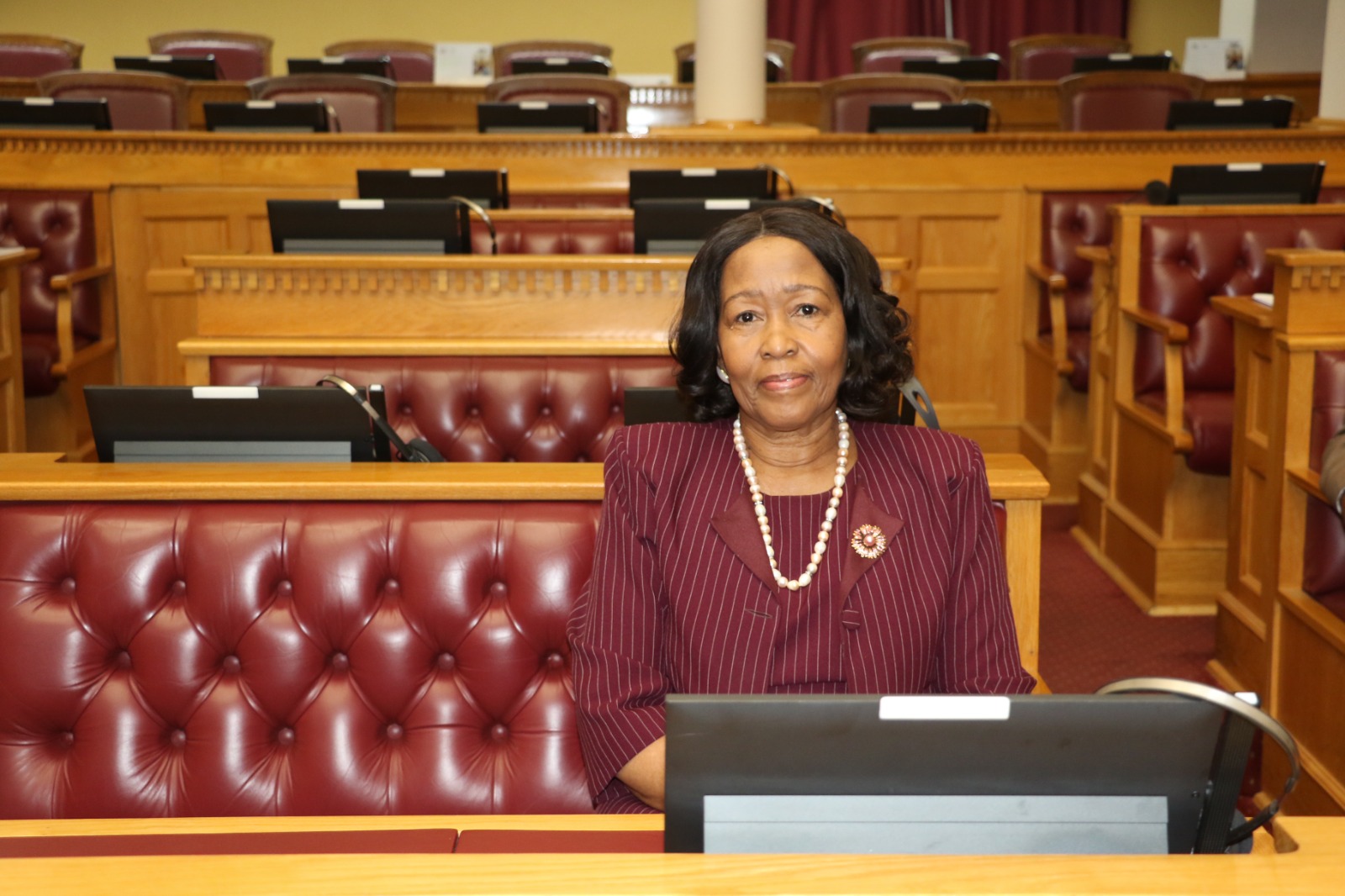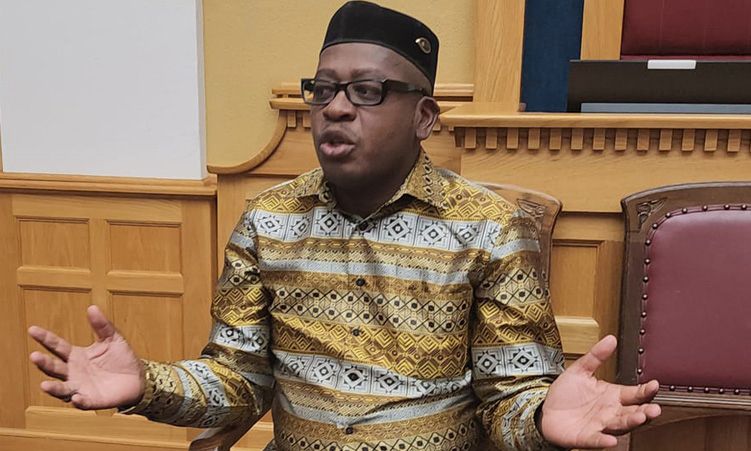WASHINGTON – Sixty years after the opening of the Nuremberg trials of top Nazis following World War Two, the tribunal’s legacy reverberates loudly in international human rights law and in the trial of former Iraqi President Saddam Hussein.
The first Nuremberg trial of 22 top Nazis, including Hermann Goering, Rudolf Hess and Joachim von Ribbentrop, began on November 20 1945. Three of the defendants were eventually acquitted entirely and 11 others acquitted of some of the charges against them.Twelve were sentenced to death, others to long prison terms.Goering was convicted but committed suicide.”Nuremberg introduced the concept that individuals and states were subject to international law, including limits on sovereignty,” said Henry King, one of the original Nuremberg prosecutors, now 86 and still active as a law professor at Case Western Reserve University in Cleveland, Ohio.”In a sense, it marked the coming of international law as a force to be reckoned with on our planet,” he said.A recent seminar at Georgetown University Law Centre explored other lasting legacies of Nuremberg.The tribunal rejected, now and forever, the ability of people accused of war crimes to argue that they were “just following orders”.It established genocide as a recognised crime and it also defined the planning, preparing, initiating and waging wars of aggression as a crime, although it provided no definition of aggression.”Nuremberg modernised the laws of war and created a denominator under which all citizens of the world could live and be judged.In doing so, Nuremberg launched the international human rights movement,” King said.Ben Ferencz (85), who was chief prosecutor at the follow-up trial in 1947 of 24 leaders of the Nazi mobile killing units known as “einstatzgruppen”, recalled asking defendant Otto Ohlendorf, who headed an extermination operation in the Crimea, how he justified killing some 90 000 unarmed civilians.”Ohlendorf said it was self-defence.He said, ‘We knew they were planning to attack us and therefore it was prudent for us to pre-empt them and attack them’,” Ferencz said, using words that have an eerie resonance today.KILLING BABIES How did Ohlendorf justify killing babies? “He said, one day, they would grow up and be a threat.It was therefore necessary to kill them before they could do so.But this idea of killing people in anticipated self-defence – the judges said this was no defence,” Ferencz said.Scholars see Nuremberg as the godfather of all subsequent human rights trials, from the prosecution of former Serbian President Slobodan Milosevic in The Hague, to the trials of those accused of genocide in Rwanda or atrocities in Sierra Leone and East Timor, to the Saddam Hussein trial.In fact, Saddam is the first person since Nuremberg to be charged with the crime of aggression, said Case Western Reserve law professor Michael Scharf.SADDAM’S RIGHTS “Saddam will have rights that none of his victims had because of the Nuremberg precedent,” Scharf said.Still, the Saddam trial remains highly problematic following the assassination of two lawyers assigned to defend some of the former Iraqi leader’s co-defendants.Saddam, like the Nuremberg defendants before him, has challenged the court’s legitimacy on the basis that it is meting out “victor’s justice”.Even in Germany, it took decades before a majority of the population accepted the legitimacy and fairness of Nuremberg.David Crane, former chief prosecutor for the special court for Sierra Leone, where nine individuals are currently on trial for atrocities in the civil war that ripped apart the West African nation in the 1990s, said he was very much aware of the legacy of Nuremberg when he arrived in the Sierra Leone capital of Freetown to begin his work in 2002.”How similar Nuremberg and Freetown were when I arrived,” he said, recalling the physical destruction of both cities.”The smell of death was literally in the air, and it was the entire three years I was there.”The Sierra Leone trial has added two new crimes against humanity to the lexicon: the forced recruitment of children under the age of 13 to an armed conflict and the forced marriage of women.Perhaps the most important outgrowth of Nuremberg was the establishment in 1998 of the International Criminal Court, created to promote the rule of law and ensure that the gravest international crimes do not go unpunished.”Nuremberg begat the Yugoslavia tribunal which begat the Rwanda tribunal which begat the special court for Sierra Leone and East Timor and now the permanent International Criminal Court,” said Scharf.Ironically, the United States, which insisted on the creation of Nuremberg, has fiercely opposed the ICC, arguing that it violates US sovereignty and independence.Despite US opposition, Mexico on October 28 became the 100th nation to ratify the statute establishing the court.”This court is not going away.It’s here to stay,” said David Scheffer, a former US ambassador at large for war crimes issues.His advice to the Bush administration: “Get used to it, get over it, get on with it.”- Nampa-ReutersThree of the defendants were eventually acquitted entirely and 11 others acquitted of some of the charges against them.Twelve were sentenced to death, others to long prison terms.Goering was convicted but committed suicide.”Nuremberg introduced the concept that individuals and states were subject to international law, including limits on sovereignty,” said Henry King, one of the original Nuremberg prosecutors, now 86 and still active as a law professor at Case Western Reserve University in Cleveland, Ohio.”In a sense, it marked the coming of international law as a force to be reckoned with on our planet,” he said.A recent seminar at Georgetown University Law Centre explored other lasting legacies of Nuremberg.The tribunal rejected, now and forever, the ability of people accused of war crimes to argue that they were “just following orders”.It established genocide as a recognised crime and it also defined the planning, preparing, initiating and waging wars of aggression as a crime, although it provided no definition of aggression.”Nuremberg modernised the laws of war and created a denominator under which all citizens of the world could live and be judged.In doing so, Nuremberg launched the international human rights movement,” King said.Ben Ferencz (85), who was chief prosecutor at the follow-up trial in 1947 of 24 leaders of the Nazi mobile killing units known as “einstatzgruppen”, recalled asking defendant Otto Ohlendorf, who headed an extermination operation in the Crimea, how he justified killing some 90 000 unarmed civilians.”Ohlendorf said it was self-defence.He said, ‘We knew they were planning to attack us and therefore it was prudent for us to pre-empt them and attack them’,” Ferencz said, using words that have an eerie resonance today.KILLING BABIES How did Ohlendorf justify killing babies? “He said, one day, they would grow up and be a threat.It was therefore necessary to kill them before they could do so.But this idea of killing people in anticipated self-defence – the judges said this was no defence,” Ferencz said.Scholars see Nuremberg as the godfather of all subsequent human rights trials, from the prosecution of former Serbian President Slobodan Milosevic in The Hague, to the trials of those accused of genocide in Rwanda or atrocities in Sierra Leone and East Timor, to the Saddam Hussein trial.In fact, Saddam is the first person since Nuremberg to be charged with the crime of aggression, said Case Western Reserve law professor Michael Scharf.SADDAM’S RIGHTS “Saddam will have rights that none of his victims had because of the Nuremberg precedent,” Scharf said.Still, the Saddam trial remains highly problematic following the assassination of two lawyers assigned to defend some of the former Iraqi leader’s co-defendants.Saddam, like the Nuremberg defendants before him, has challenged the court’s legitimacy on the basis that it is meting out “victor’s justice”.Even in Germany, it took decades before a majority of the population accepted the legitimacy and fairness of Nuremberg.David Crane, former chief prosecutor for the special court for Sierra Leone, where nine individuals are currently on trial for atrocities in the civil war that ripped apart the West African nation in the 1990s, said he was very much aware of the legacy of Nuremberg when he arrived in the Sierra Leone capital of Freetown to begin his work in 2002.”How similar Nuremberg and Freetown were when I arrived,” he said, recalling the physical destruction of both cities.”The smell of death was literally in the air, and it was the entire three years I was there.”The Sierra Leone trial has added two new crimes against humanity to the lexicon: the forced recruitment of children under the age of 13 to an armed conflict and the forced marriage of women.Perhaps the most important outgrowth of Nuremberg was the establishment in 1998 of the International Criminal Court, created to promote the rule of law and ensure that the gravest international crimes do not go unpunished.”Nuremberg begat the Yugoslavia tribunal which begat the Rwanda tribunal which begat the special court for Sierra Leone and East Timor and now the permanent International Criminal Court,” said Scharf.Ironically, the United States, which insisted on the creation of Nuremberg, has fiercely opposed the ICC, arguing that it violates US sovereignty and independence.Despite US opposition, Mexico on October 28 became the 100th nation to ratify the statute establishing the court.”This court is not going away.It’s here to stay,” said David Scheffer, a former US ambassador at large for war crimes issues.His advice to the Bush administration: “Get used to it, get over it, get on with it.”- Nampa-Reuters
Stay informed with The Namibian – your source for credible journalism. Get in-depth reporting and opinions for
only N$85 a month. Invest in journalism, invest in democracy –
Subscribe Now!










